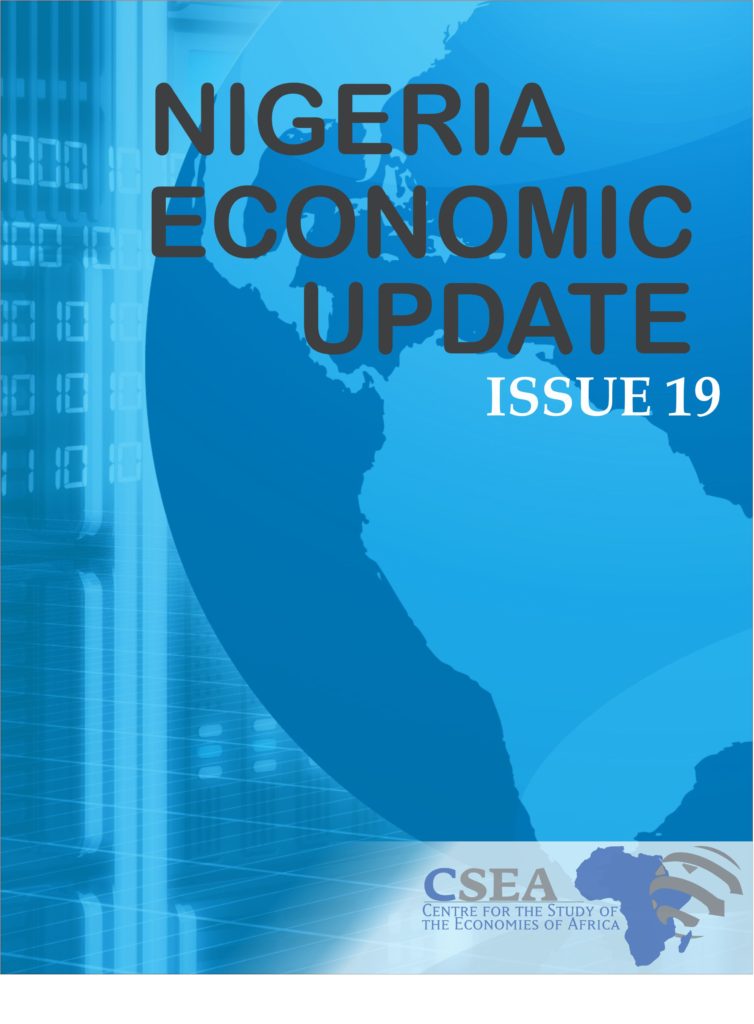Capital imported into Nigeria, maintained an upward trajectory in 2018Q1, following three consecutive quarterly increase. Specifically, capital importation rose to $6.30 billion in 2018Q11– a remarkable Year-on-Year growth of 594 percent (from $908.27 million), and Quarter-over-Quarter increase of 17 percent ($5.38 billion). Inferably, investors’ interest and confidence in the Nigerian economy have continued to soar since 2017Q2; this is particularly represented by the extent of portfolio investment flows which increased approximately fifteen times more than the $313.61 million recorded in the corresponding 2017Q1 quarter, and accounted for 72.4 percent of total capital importation in the review quarter
Macroeconomic Report & Economic Updates

June 14, 2018
Nigeria Economic Update (Issue 19)
Capital imported into Nigeria, maintained an upward trajectory in 2018Q1, following three consecutive quarterly increase. Specifically, capital importation rose to $6.30 billion in 2018Q11– a remarkable Year-on-Year growth of 594 percent (from $908.27 million), and Quarter-over-Quarter increase of 17 percent ($5.38 billion). Inferably, investors’ interest and confidence in the Nigerian economy have continued to soar […]
Read →
Related
Nigeria Economic Update (Issue 24)
Crude
oil price increased, in the week under review, to its highest price in 2016. Nigerias
bonny light increased by $1.38 from $48.02 per barrel on May 20, 2016 to $49.64
per barrel on May 27, 2016, while Brent crude was sold for $50 per
barrel on May 26, 2016. The catalyst for price gains in the period
under review is the supply-side contractions, with unplanned production shortages
in Nigeria, Canada and Iraq. The upward trend of prices may unlock
more supplies in subsequent weeks, but the OPEC meeting scheduled for June 2,
2016, could moderate the effect. Nigeria is expected to benefit from crude oil
price rising above the $38 per barrel benchmark. Unfortunately, supply
disruptions continue to negatively affect oil revenue and may have contributed
to the depletion of external reserve by over $153 millionthis
week. The federal government, in collaboration with relevant security agencies,
should find a lasting solution to the vandalism of oil pipelines and production
facilities.
Nigeria Economic Update (Issue 25)
Crude oil price continued to increase in the
period under review, reaching its 2016 peak at $50.30 on June 2, 2016.
Specifically, OPEC weekly basket price increased by 1.43 percent from $44.65 on
May 27, 2016 to $45.29 on June 3, 2016. Brent was sold for $49.96
on June 3, 2016. The present rise in crude oil price can be
attributed to oil production shocks in several oil-exporting countries, and the
general expectation of a further cut in output following the OPEC meeting in
Vienna on June 2, 2016. However, the OPEC meeting ended with no agreement on
production quotas. In Nigeria, oil production level increased in the period
under review, following repairs on some of the damaged oil and gas facilities. Precisely,
Nigerias output increased by 200,000 barrels on June 3, 2016 to 1.6 million
barrels.
